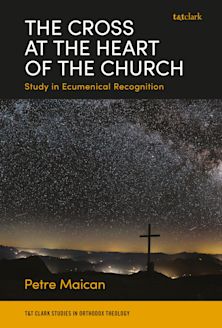Friendship: Exploring its Implications for the Church in Postmodernity
You must sign in to add this item to your wishlist. Please sign in or create an account
Description
Is the Church a community of friends? Steve Summers explores the significance of friendship for our understanding of the church today. Since Jesus' statement in St John's gospel "I call you friends" the concept of friendship has had a huge influence on the Christian understanding of community. But is the historical understanding of friendship enough to serve the needs of the church in a post-modern age? Steve Summers explores the limits of the concept as well as it's possible use in contemporary ecclesiology.
Table of Contents
Methodology
Scholarship
Structure
SECTION ONE
Chapter 1 - 'YOU ARE MY FRIENDS' A textual survey
Chapter 2 - FRIENDSHIP'S POSTMODERN CONTEXT
SECTION TWO
Chapter 3 - FRIENDSHIP IN THE CLASSICAL ERA AND BEYOND
Chapter 4 - A THEOLOGICAL UNDERSTANDING OF FRIENDSHIP
Chapter 5 - FRIENDS - THE SELF AND THE OTHER
SECTION THREE
Chapter 6 - FRIENDSHIP'S PARTICULARITY
Chapter 7 - THE CHURCH - A COMMUNITY OF FRIENDS
CONCLUSION
BIBLIOGRAPHY
Product details
| Published | 27 Oct 2011 |
|---|---|
| Format | Ebook (Epub & Mobi) |
| Edition | 1st |
| Extent | 224 |
| ISBN | 9780567089908 |
| Imprint | T&T Clark |
| Series | Ecclesiological Investigations |
| Publisher | Bloomsbury Publishing |
About the contributors
Reviews
-
'The church always exists in a tensive relationship with its surrounding culture. But the culture of postmodernity, with its fragmentation of knowledge and individualism, seems to challenge the church's very existence. Dr. Steve Summers responds by showing how the human phenomenon of friendship opens up a deeper understanding of the fundamental character of the church that meets the challenge. The church is not an assembly of likeminded people with the same beliefs, but a community of friends that actualize something close to spiritual organicity in the face of rootlessness and dispersion. They participate by invitation in the Eucharistic meal of friends in the Lord; they create an open space for receiving others; they live on the basis of a common friendship with God. This is not an essay on church organization, but a probing account of the ontological condition of friends of God in Christ. Multidisciplinary in it sources, this theology probes beneath the surface of the church to reveal in a profound way its nature. It is a major contribution to ecclesiology.' - Roger Haight, S. J., Union Theological Seminary, New York, USA
Roger Haight S.J.
-
'Timely and ambitiously wide-ranging, this book provokes thought on the meaning of God's love as friendship-love and how it can, in today's context, inform the Church's self-understanding as an open, Eucharistic, community of friends.' - Elizabeth Carmichael, Faculty of Theology, University of Oxford, UK
Elizabeth Carmichael
-
'Summer's work is an interesting ecclesiological investigation, and one which the church should be encouraged to hear.'
Theological Book Review
-
'This book is at its best when describing where Summers seems most at home, namely the post-modern condition itself, which he clearly welcomes, particularly for the church.'
Ecclesiology


































